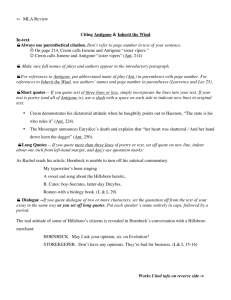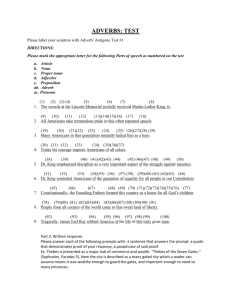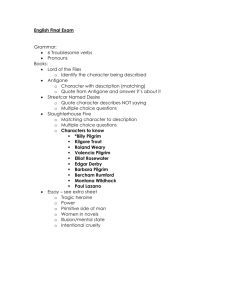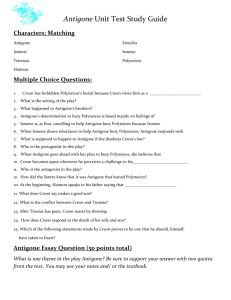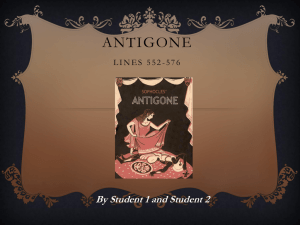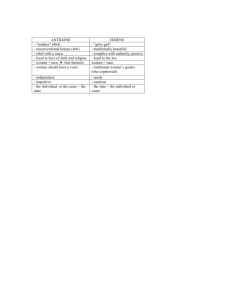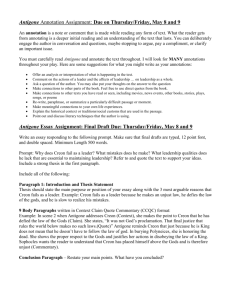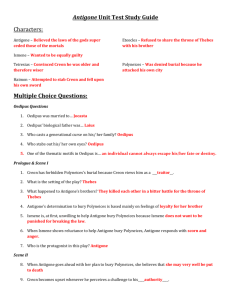Using Quotations
advertisement
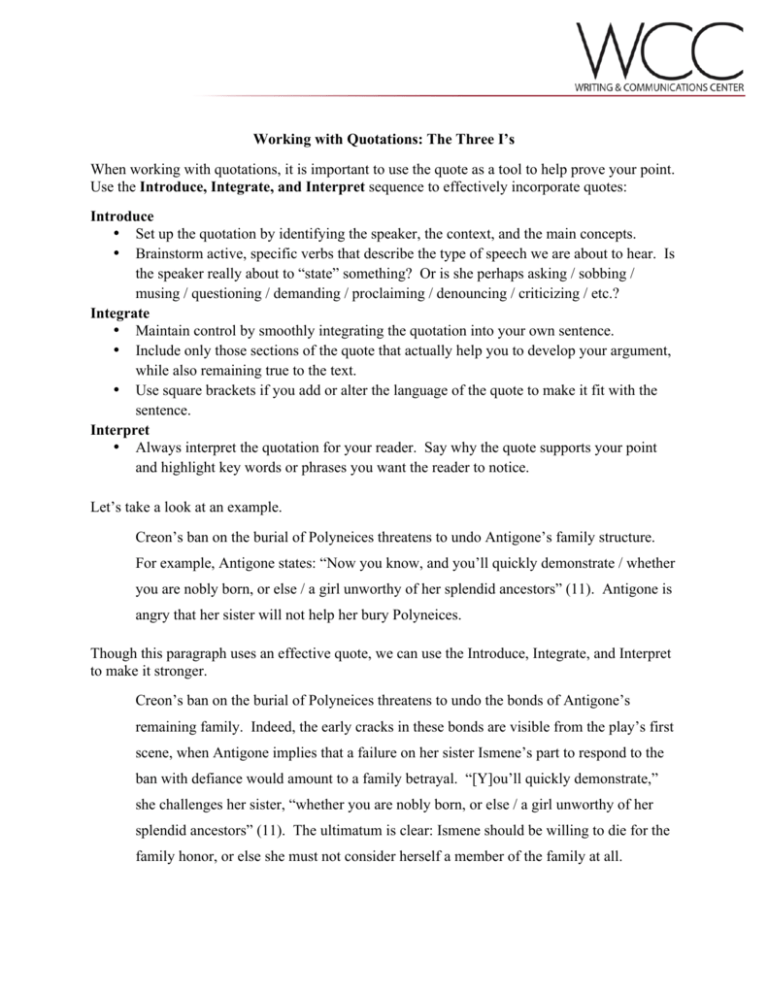
Working with Quotations: The Three I’s When working with quotations, it is important to use the quote as a tool to help prove your point. Use the Introduce, Integrate, and Interpret sequence to effectively incorporate quotes: Introduce • Set up the quotation by identifying the speaker, the context, and the main concepts. • Brainstorm active, specific verbs that describe the type of speech we are about to hear. Is the speaker really about to “state” something? Or is she perhaps asking / sobbing / musing / questioning / demanding / proclaiming / denouncing / criticizing / etc.? Integrate • Maintain control by smoothly integrating the quotation into your own sentence. • Include only those sections of the quote that actually help you to develop your argument, while also remaining true to the text. • Use square brackets if you add or alter the language of the quote to make it fit with the sentence. Interpret • Always interpret the quotation for your reader. Say why the quote supports your point and highlight key words or phrases you want the reader to notice. Let’s take a look at an example. Creon’s ban on the burial of Polyneices threatens to undo Antigone’s family structure. For example, Antigone states: “Now you know, and you’ll quickly demonstrate / whether you are nobly born, or else / a girl unworthy of her splendid ancestors” (11). Antigone is angry that her sister will not help her bury Polyneices. Though this paragraph uses an effective quote, we can use the Introduce, Integrate, and Interpret to make it stronger. Creon’s ban on the burial of Polyneices threatens to undo the bonds of Antigone’s remaining family. Indeed, the early cracks in these bonds are visible from the play’s first scene, when Antigone implies that a failure on her sister Ismene’s part to respond to the ban with defiance would amount to a family betrayal. “[Y]ou’ll quickly demonstrate,” she challenges her sister, “whether you are nobly born, or else / a girl unworthy of her splendid ancestors” (11). The ultimatum is clear: Ismene should be willing to die for the family honor, or else she must not consider herself a member of the family at all.
